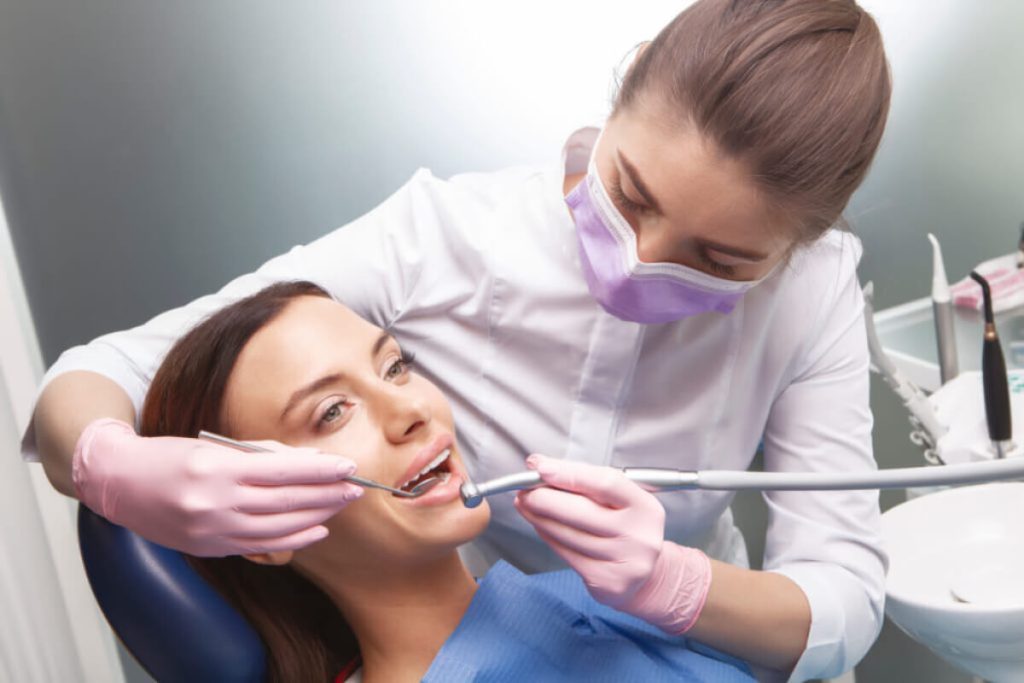Dental emergencies are any oral issues that require urgent attention. Many patients will experience a dental emergency at least once during their lifetime, and it’s important to know a dental clinic that offers emergency dentistry near you.
Some patients are unsure what they can consider a dental emergency. Some situations may require a visit to a dentist near you immediately, and some might need patience and additional care before seeking professional care. It is highly important to understand when an urgent visit to the dentist is necessary and when you can afford to wait.
Types of Dental Emergencies
Our dentists in Lethbridge have dealt with a large number of dental emergencies. Although each patient case is unique, some of the most common dental emergencies include:
1) Knocked-out teeth
During contact sports, many people may experience trauma to the face which may result in knocked-out teeth. If you experienced a hit to the face and notice you are missing a tooth, here is what to do:
Try to find the tooth as soon as possible and pick it up by the crown. Avoid touching the tooth’s root as this can cause additional damage. Try putting the tooth back into its socket carefully; this is recommended tohelp preserve your tooth. If you cannot place it back into the gum, put it in a glass of milk and quickly visit us at Absolute Dental. If you do not have any milk, place the tooth in a comfortable spot in your mouth to keep it moist, then head over to your dental clinic. If you act quickly, your dentist may be able to save your natural tooth.
2) Excessive pain
Experiencing pain is never a good sign. Some dental treatments and procedures may result in some discomfort, but this should quickly subside. If you are experiencing sudden pain or extreme discomfort, visit your dentist. Pain that does not go away could be due to a broken or chipped tooth, an infection, or an abscess. A dentist should examine your teeth immediately so that the source of your pain is found.
3) Bleeding
Small amounts of blood after dental treatment are common and do not necessarily mean a dental emergency. But continual bleeding, especially when brushing, could mean you have gingivitis. If you believe you have an infection, you should schedule a visit to the dentist to restore your oral health. Excessive blood could mean an advanced stage of periodontal disease or oral cancer.
4) Gum abscess or cyst.
Abscess in the gums is similar to a pus-filled pimple. This typically arises from an oral infection. This condition should be urgently treated since infections can affect other teeth and travel to different parts of the body. A dental abscess may also cause teeth sensitivity, pain, fever and swelling.
In comparison, a cyst is a fleshy sac filled with air or other fluid. These can form anywhere on the body, including your mouth. They often go away on their own but if not, be sure to speak with a dentist.
5) A cracked or chipped tooth
Chipped teeth can be serious since the damage can lead to other more complex problems down the road. Even if a tooth may just appear cracked on the surface, the damage could be affectingits roots. Waiting to visit a dentist can result in more pain, discomfort, and potential tooth decay if the crack is deeper than assumed.
Knowing you have access to an emergency dentist near you is important to avoid any stress and anxiety with an urgent situation. Absolute Dental offers emergency dentistry in Lethbridge, and our staff will be happy to assist you during a dental emergency. Contact us if you have experienced any of the issues above or are unsure if your situation qualifies for immediate attention.
